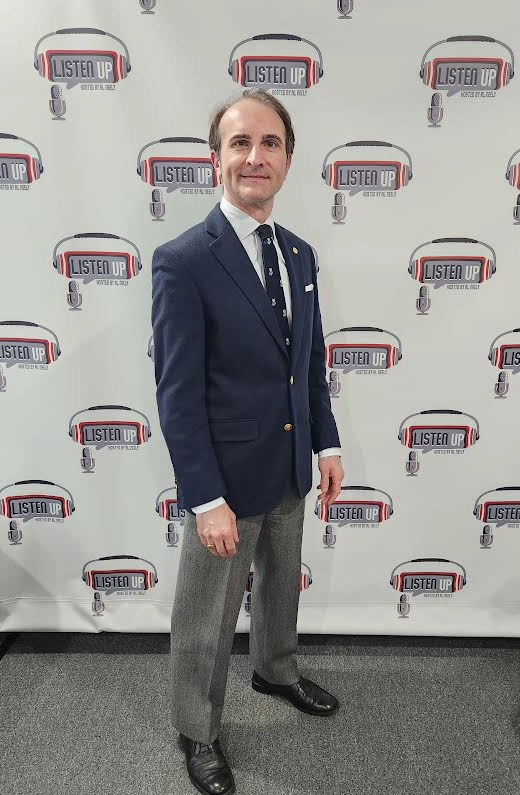Criminal justice reform is a complex and often misunderstood topic in today’s polarized political landscape. In a recent conversation with Ramin Fatehi, Norfolk’s Commonwealth Attorney, we gained valuable insights into the realities of progressive prosecution and the challenges of rebuilding trust in a system with a troubled history.
Fatehi brings a unique perspective to his role, shaped by his multicultural upbringing as the son of an Iranian neurosurgeon father and American nurse mother. Growing up in both Iran and Virginia, he experienced otherness from both sides – judged in Iran for having an American mother and then in America for his Iranian heritage. This outsider-insider experience profoundly influenced his views on justice, helping him recognize how assumptions and prejudices shape outcomes for different people within the system.
The conversation powerfully highlights the stark contrast between how the justice system treats those with wealth and connections versus those without. Fatehi recounts seeing classmates from his elite private school background receive “second chances” for misbehavior that would have resulted in criminal charges for youth from less privileged backgrounds. This two-tiered approach to justice isn’t merely anecdotal – it’s reflected in decades of data showing disparate outcomes based on wealth, race, and status.
What makes Fatehi’s approach distinctive is his willingness to acknowledge these uncomfortable realities. Unlike many in his position who might defend the status quo, he openly discusses the justice system’s troubled history – from its origins in slave patrols to the documented misconduct by both police and prosecutors that has led to wrongful convictions. This transparency is part of what he describes as a necessary “trust-building process,” comparable to cleaning an infected wound that has merely scabbed over without truly healing.
Under Fatehi’s leadership, Norfolk has seen remarkable changes. Homicides have dropped from 63 to 37, violent crime is down 40%, and property crime has decreased by 27%. Perhaps most telling is that jail population has been cut by nearly half compared to a decade ago. These improvements haven’t come through the tired “tough on crime” approaches that dominated the 1990s, but through data-driven, individualized decision-making about when severe sanctions are necessary and when alternatives like diversion and treatment are more effective.
The interview also touches on the cyclical nature of civil rights progress in America. As Fatehi notes, each major advance in civil rights has historically been met with backlash. The brief experiment with equality during Reconstruction gave way to Jim Crow laws and lynching. The social justice movements of recent years have similarly faced powerful resistance. This historical context helps explain current tensions around criminal justice reform.
Perhaps most thought-provoking is Fatehi’s concern for the future. He worries that economic disinvestment, educational inequality, and lack of good jobs will drive crime rates back up, which could then be used to justify a return to failed mass incarceration policies. The interview serves as a reminder that criminal justice doesn’t exist in isolation – it’s deeply connected to broader social and economic conditions.
For communities seeking real public safety, Fatehi’s message is clear: building trust through transparency, using data rather than fear to drive decisions, and addressing root causes rather than symptoms are the path forward. His approach reminds us that true justice requires both accountability and compassion, both consequences and second chances, depending on individual circumstances rather than blanket policies.


